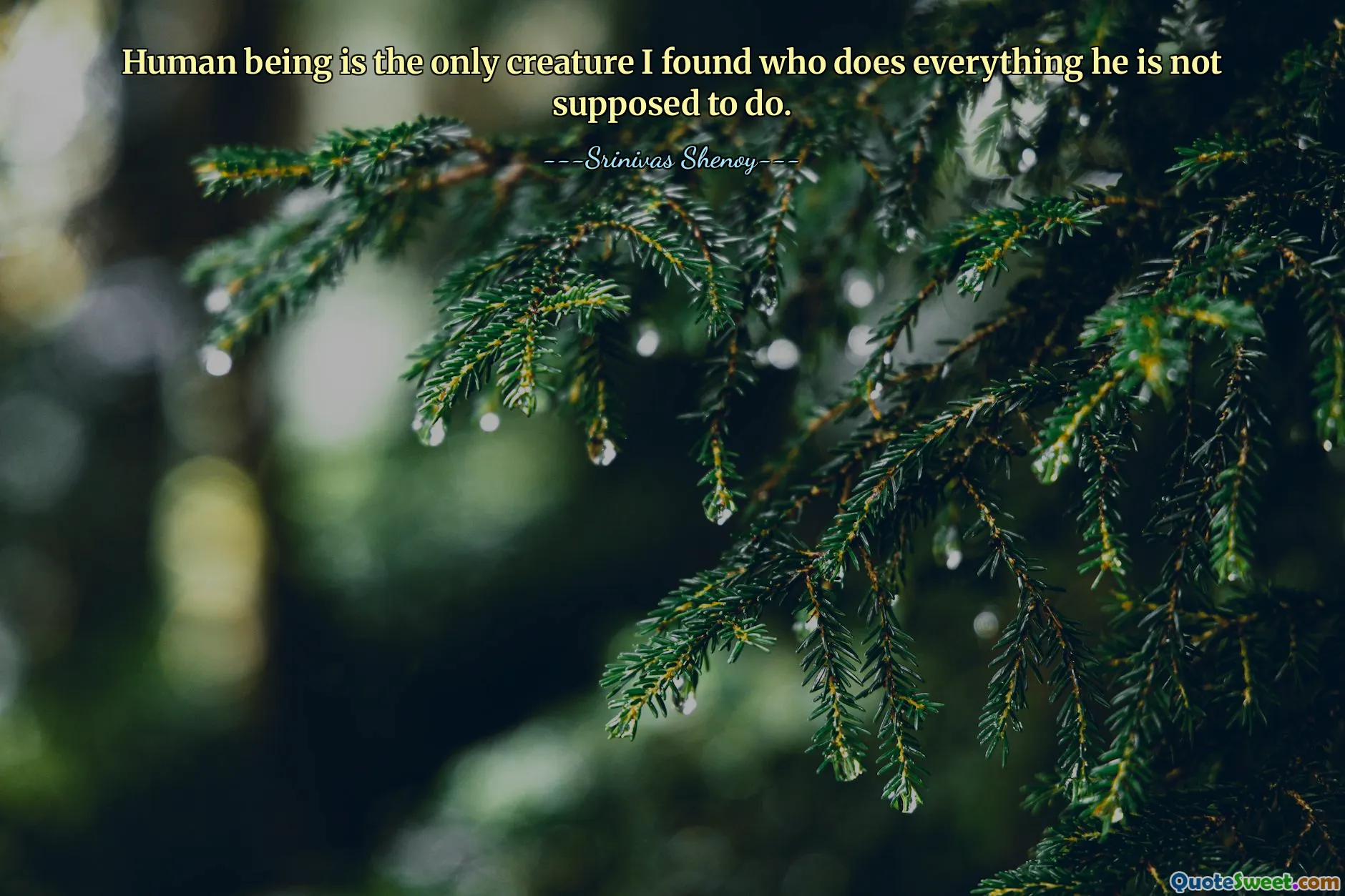
Human being is the only creature I found who does everything he is not supposed to do.
This quote vividly captures a profound aspect of human nature—the paradox of human behavior. Humans possess remarkable intelligence, creativity, and capacity for progress, yet they often seem to indulge in actions that counter their own interests, societal norms, or moral codes. This tendency to knowingly or unknowingly do what is deemed 'not supposed to do' highlights the complex interplay between rational thought and emotional impulse. It reflects the innate imperfections and contradictions within us. Throughout history, humans have repeatedly crossed boundaries, defied expectations, and made choices that sometimes lead to self-destruction or societal chaos, despite understanding the potential consequences. Such behavior can stem from various factors—desire, ego, misinformation, or the pursuit of immediate gratification. Recognizing this duality is vital for fostering self-awareness and growth, as it allows individuals to examine their motives, motivations, and actions critically. It also underscores the importance of compassion and patience in understanding others, as everyone struggles with internal conflicts that influence their decisions. On a broader level, this observation encourages societies to create environments that promote self-control, ethical decision-making, and collective well-being. By acknowledging our tendencies to stray from what is right or expected, we can work towards personal improvement and building a more empathetic world where such tendencies are managed or mitigated. Ultimately, this quote points out the universal flaws within humanity—flaws that are also opportunities for learning, development, and compassion.











